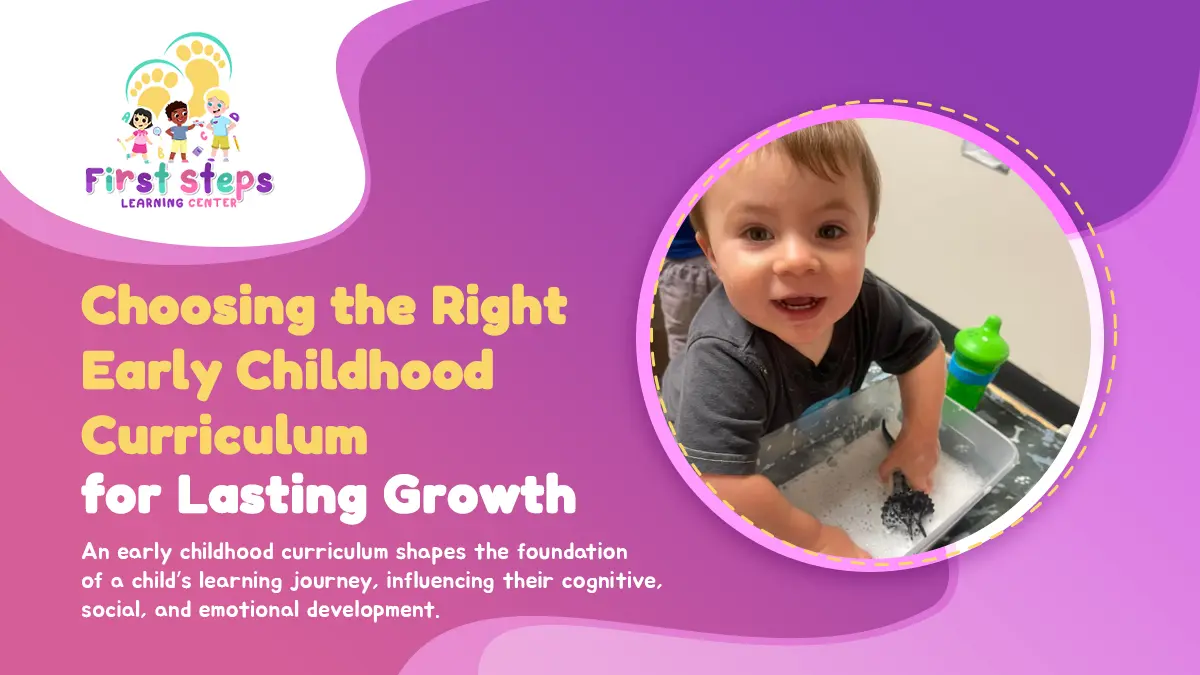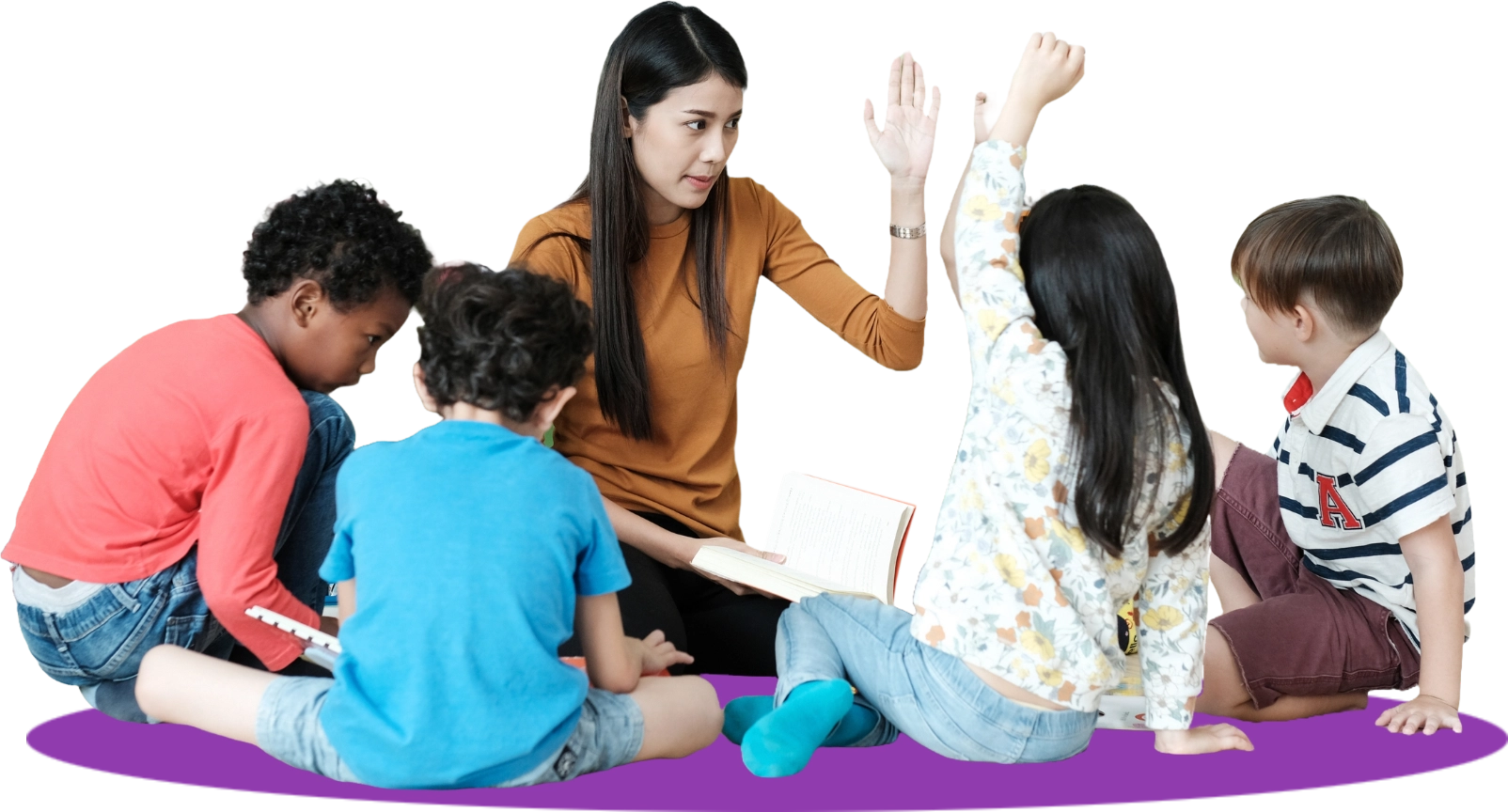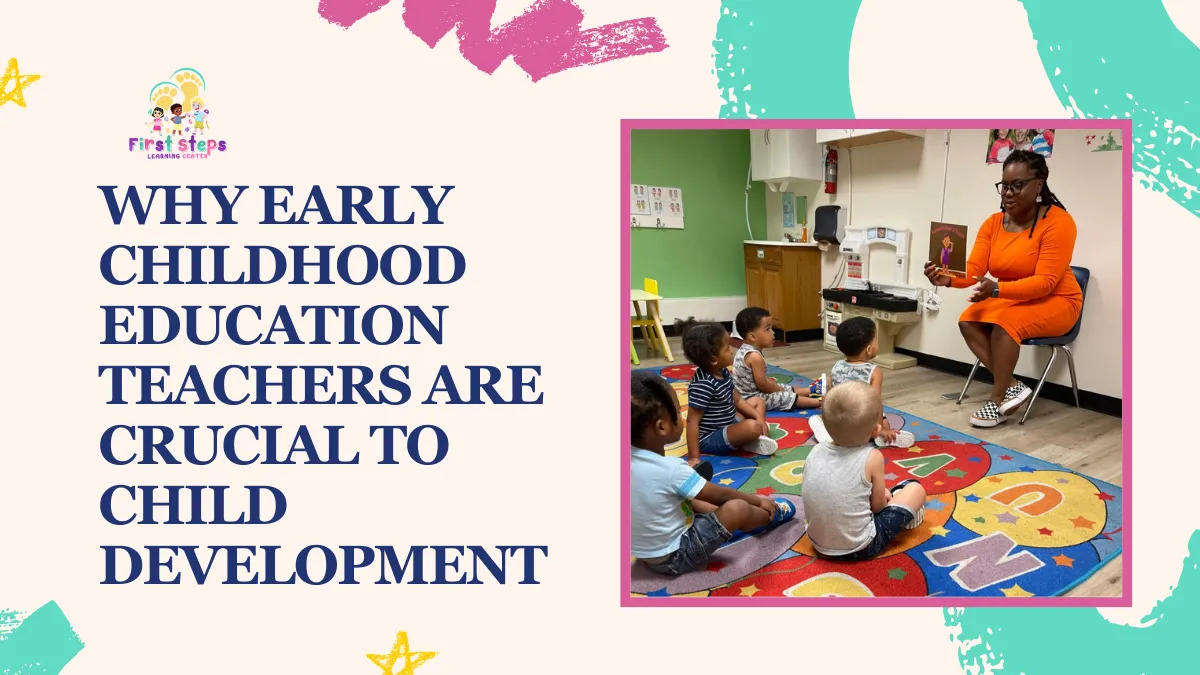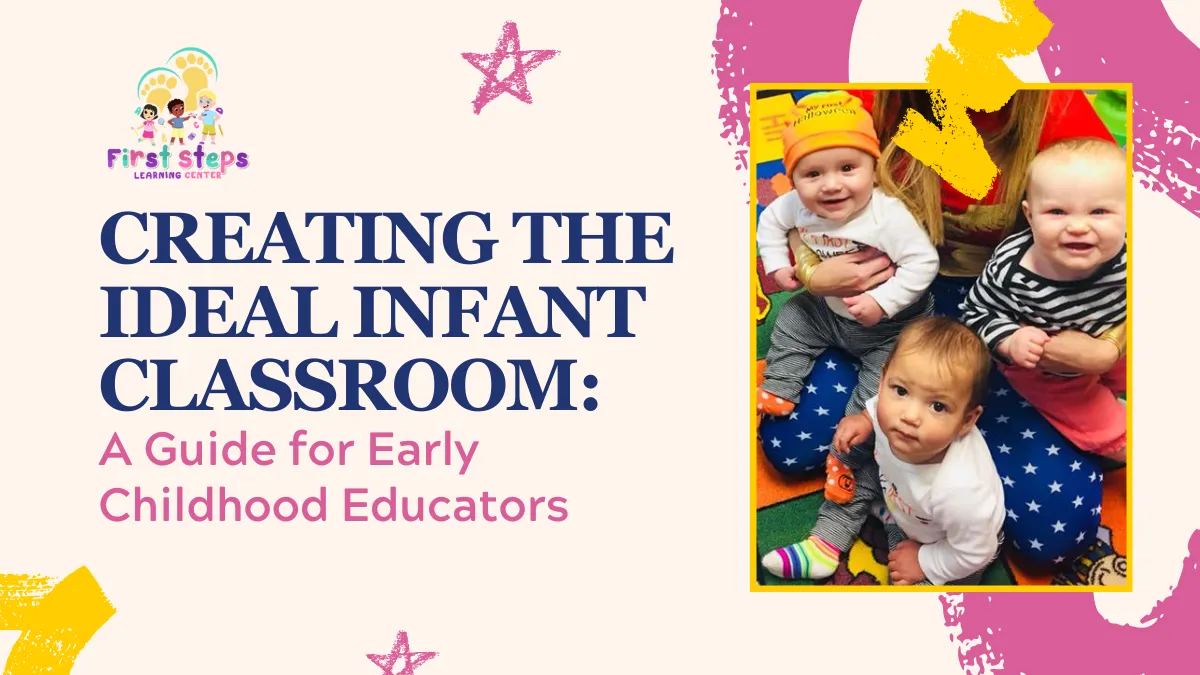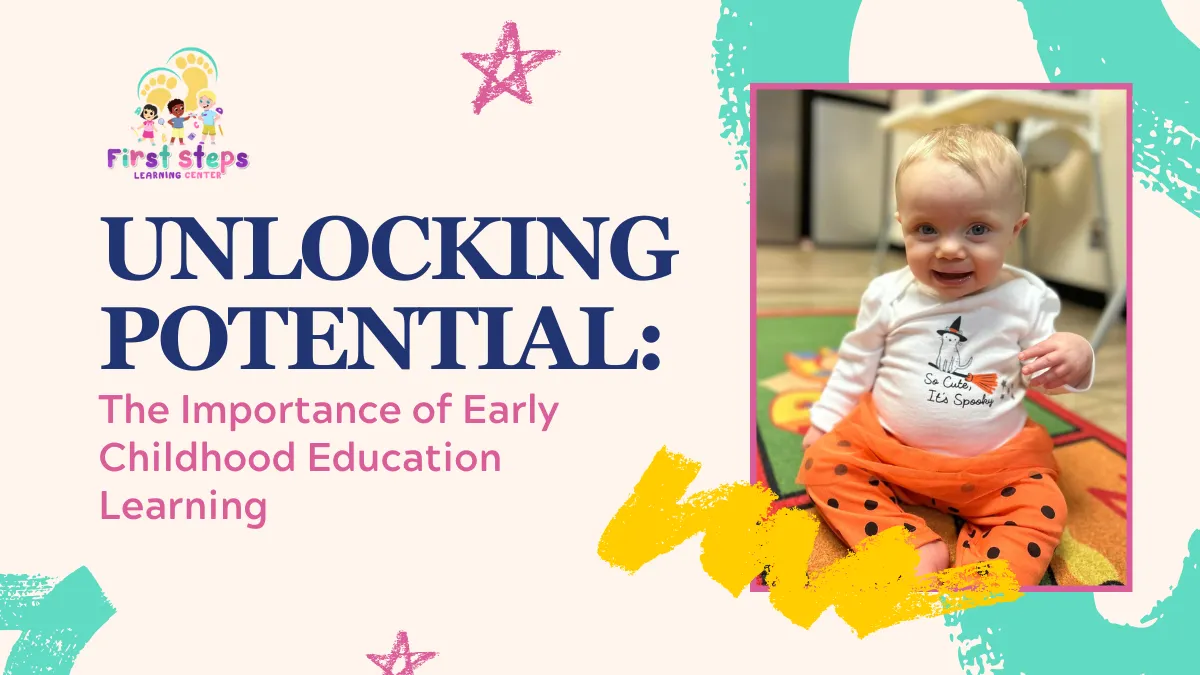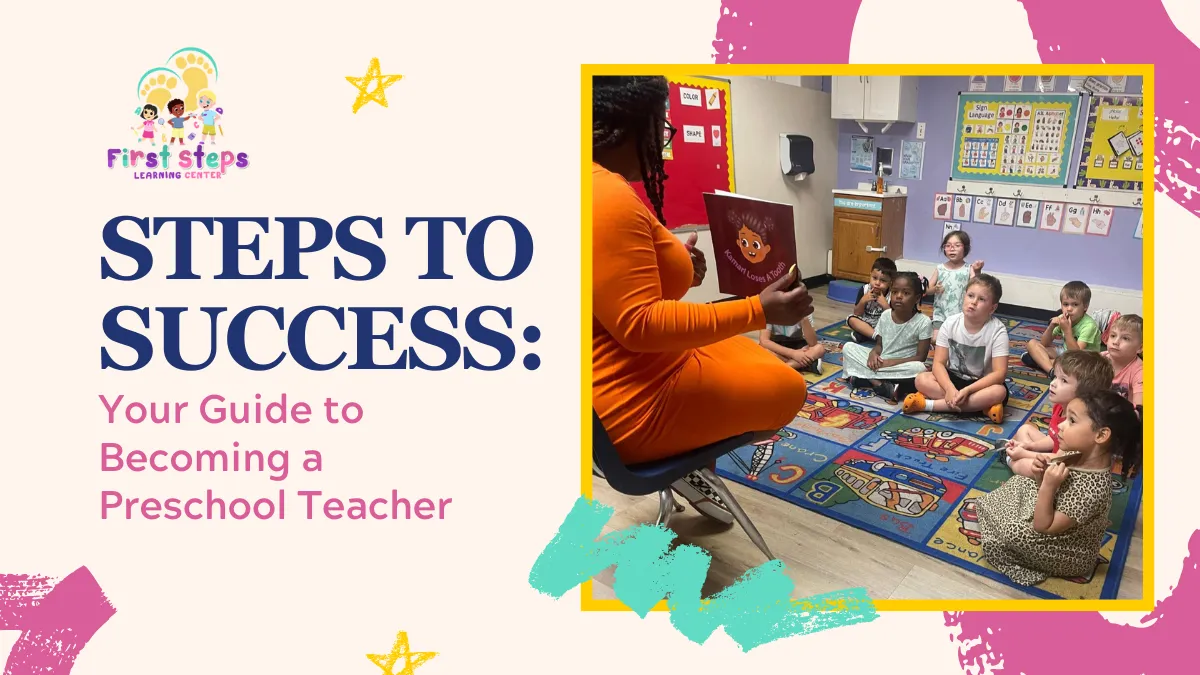An early childhood curriculum shapes the foundation of a child’s learning journey, influencing their cognitive, social, and emotional development. At First Steps Learning Center, we understand that young minds thrive in an environment where curiosity is nurtured, creativity is encouraged, and foundational skills are developed through engaging hands-on experiences. Choosing the right curriculum ensures that children learn essential academic concepts and develop a love for exploration and problem-solving.
A well-balanced approach combines structured learning with play-based activities, allowing children to grow at their own pace while feeling supported every step of the way. A strong early childhood curriculum builds confidence, independence, and a sense of accomplishment by focusing on individualized learning, setting the stage for future success in school and beyond.
Understanding Age-Appropriate Learning in Early Education
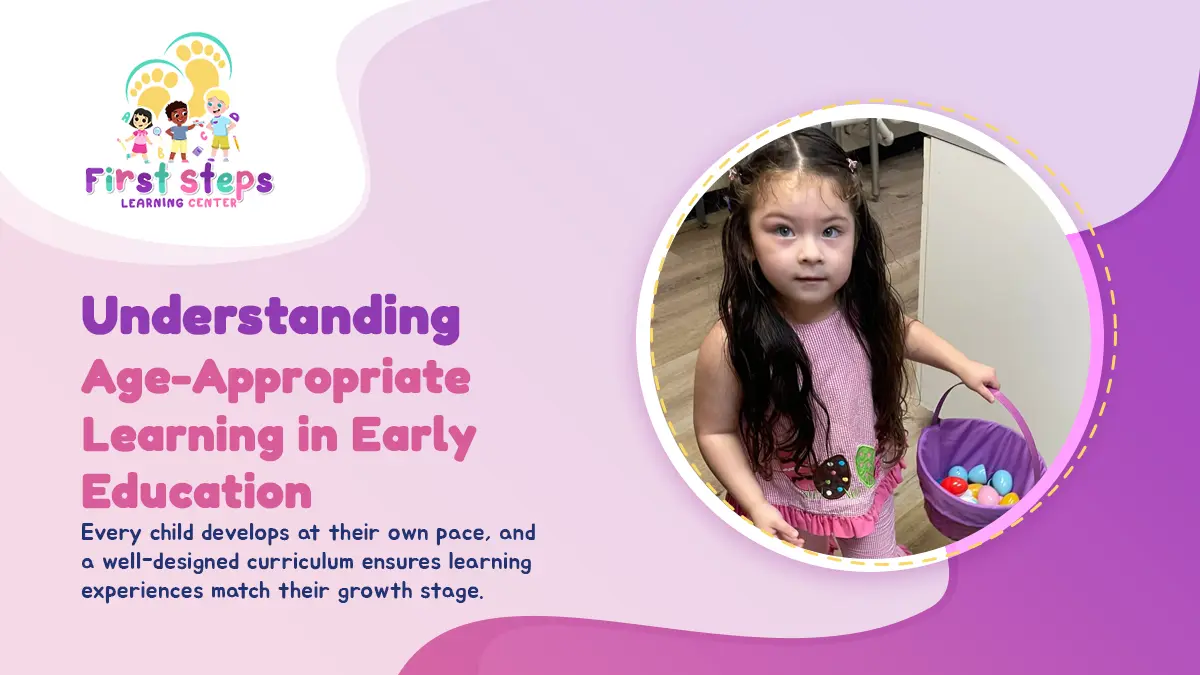
Every child develops at their own pace, and a well-designed curriculum ensures learning experiences match their growth stage. Age-appropriate learning focuses on engaging children with activities that align with their cognitive, social, and physical abilities. When lessons are tailored to developmental needs, children feel confident, curious, and eager to explore the world around them.
Developmental Stages: Learning at the Right Pace
Young learners undergo different developmental milestones, and early education should support these transitions with patience and understanding. A curriculum that adapts to each stage helps children grasp concepts naturally without feeling overwhelmed.
- Infants and toddlers: Focus on sensory exploration, basic motor skills, and secure attachments through familiar routines.
- Preschoolers: Encourage early problem-solving, communication, and creative play to support independence.
- Pre-kindergarteners: Introduce structured learning with pre-literacy and numeracy skills while maintaining a play-based approach.
By recognizing these milestones, educators can provide activities that challenge and engage children without causing frustration. This technique fosters a love for learning and helps young minds develop comfortably and naturally.
Engaging Activities: The Power of Play-Based Learning
Play is the foundation of early education, allowing children to explore their environment while building essential skills. A well-rounded, age-appropriate learning curriculum integrates structured and free-play activities to promote creativity, social skills, and problem-solving.
- Sensory play: Activities like water tables, sand play, and textured materials encourage cognitive and motor development.
- Dramatic play: Role-playing and storytelling enhance language development and social skills.
- Manipulative learning: Puzzles, building blocks, and shape sorting introduce early math and reasoning abilities.
By incorporating these hands-on experiences, children develop critical thinking skills, strengthen coordination, and learn to express themselves in a safe and supportive setting. Play makes learning fun and encourages natural curiosity and self-directed discovery.
Balanced Instruction: Combining Structure and Exploration
While free play is essential, children benefit from structured activities that introduce them to early academic concepts. A balance between teacher-guided lessons and independent exploration ensures children develop key skills while maintaining a sense of autonomy.
- Circle time: Group discussions and interactive reading sessions build listening skills and encourage participation.
- Guided activities: Educator-led tasks provide gentle direction while fostering engagement.
- Exploratory centers: Stations for art, science, and music allow children to follow their interests at their own pace.
This combination of structure and independence gives children the confidence to engage in learning while developing critical cognitive and social skills. It also helps prepare them for future academic settings where guided instruction and self-driven discovery play a role.
How Preschool Preparation Sets the Stage for Success
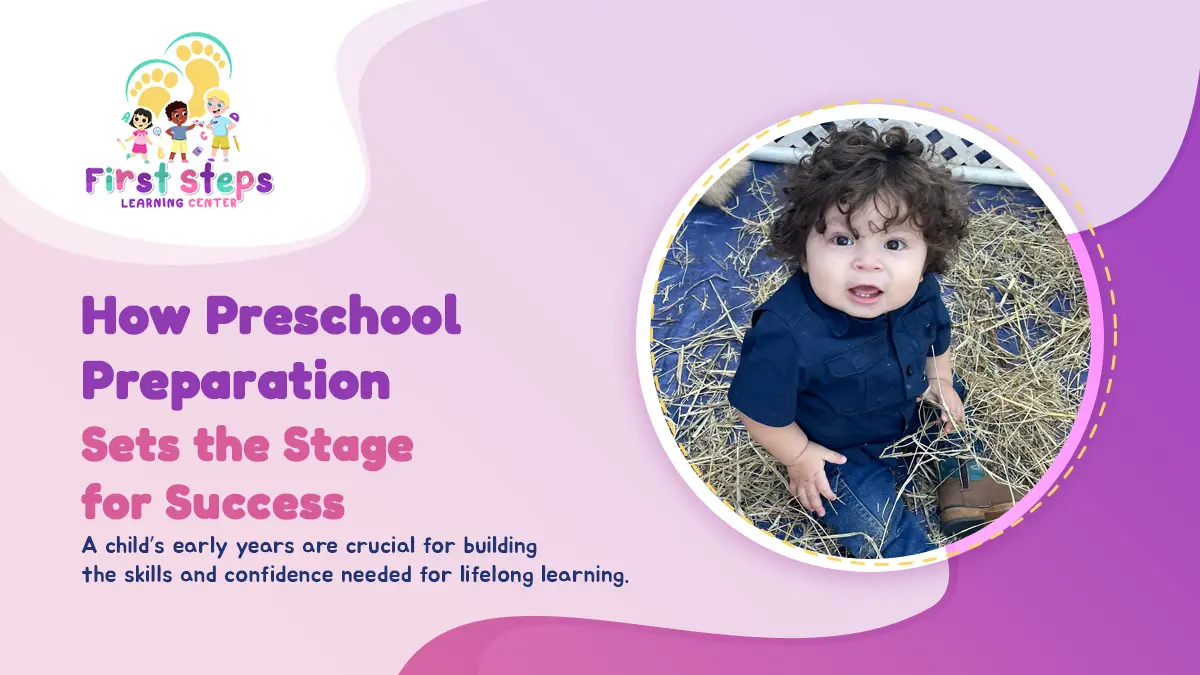
A child’s early years are crucial for building the skills and confidence needed for lifelong learning. Preschool preparation helps children transition smoothly into a structured classroom setting by introducing routines, social interactions, and foundational academic concepts. When children feel comfortable and prepared, they develop a love for learning that carries them through their academic journey.
Building Routines: Creating Consistency and Stability
Consistency is key to helping young children feel secure in a learning environment. Establishing daily routines in a preschool setting prepares children for structured school days, teaching them to manage transitions and follow schedules.
- Morning greetings: Welcoming activities help children feel comfortable and ready to start the day.
- Scheduled learning times: Designated times for reading, play, and hands-on learning create a sense of order.
- Snack and rest breaks: Predictable meal and nap times promote healthy habits and self-regulation.
When children are familiar with daily routines, they experience less anxiety and more confidence in navigating the school day. This foundation helps them adjust to kindergarten and beyond with ease.
Social Development: Learning Cooperation and Communication
Preschool preparation goes beyond academics and helps children develop essential social skills. By interacting with peers in a structured setting, children learn how to share, express themselves, and collaborate with others.
- Group activities: Playing and learning with classmates teaches cooperation and teamwork.
- Turn-taking games: Practicing patience and fairness helps children build positive social habits.
- Conflict resolution: Guided discussions help children understand emotions and find peaceful solutions.
Developing these skills early allows children to build strong relationships with peers and teachers, making the transition to kindergarten smoother and more enjoyable. Social confidence encourages children to participate in group learning experiences and easily adapt to new environments.
Confidence in Learning: Preparing for Classroom Success
Preschool preparation helps children gain confidence in learning, exploring, and expressing their ideas. Through hands-on experiences and engaging activities, children develop problem-solving skills, independence, and a positive attitude toward learning.
- Interactive storytelling: Encouraging children to listen, ask questions, and share their thoughts builds early literacy skills.
- Creative expression: Art, music, and movement activities allow children to develop self-expression and creativity.
- Exploratory learning: Hands-on experiments and play-based learning help children develop curiosity and problem-solving abilities.
Children who feel confident in their learning environment are likelier to take risks, ask questions, and embrace new challenges. Preschool preparation ensures they enter kindergarten ready to learn, explore, and grow with enthusiasm.
The Importance of a Strong Academic Foundation in Early Years
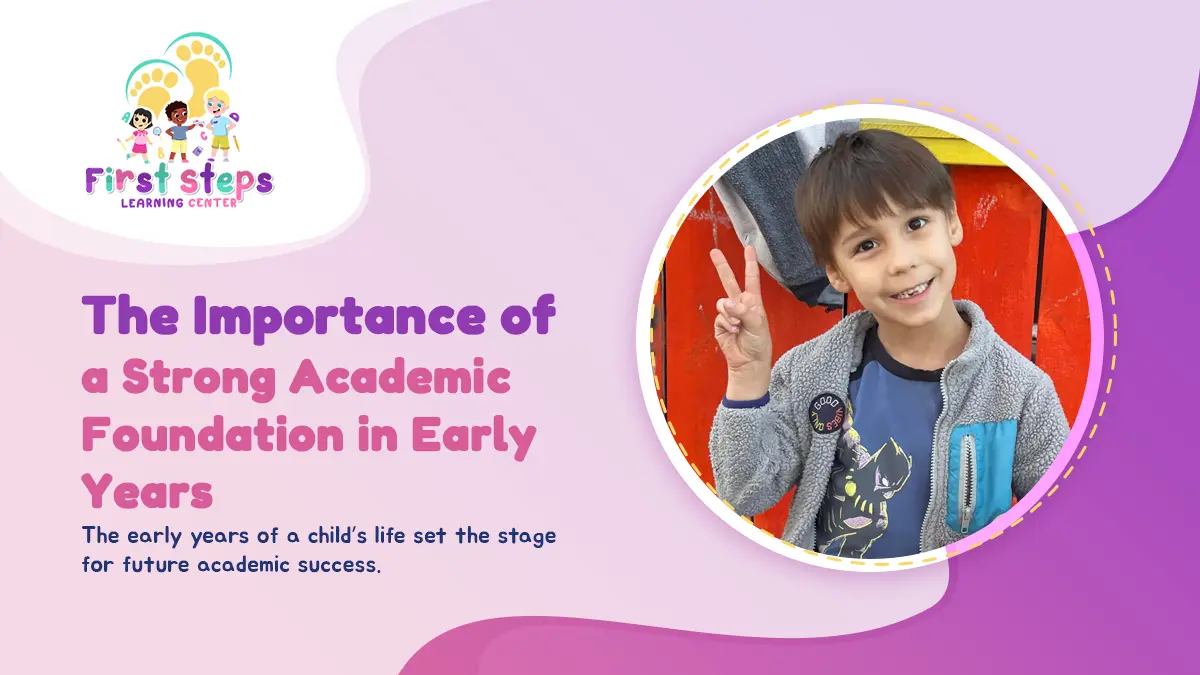
The early years of a child’s life set the stage for future academic success. A well-structured curriculum that focuses on building an academic foundation ensures that children develop essential skills in literacy, numeracy, problem-solving, and critical thinking. By introducing these concepts early in an engaging and age-appropriate way, children gain the confidence and ability to tackle more advanced learning as they grow.
Early Literacy and Numeracy: Building Blocks for Future Learning
Reading, writing, and math skills form the foundation of a child’s academic journey. These subjects become exciting rather than intimidating when introduced through playful and interactive methods. Developing literacy and numeracy abilities at a young age ensures children are ready for the structured learning of kindergarten and beyond.
- Storytime sessions: Listening to stories enhances vocabulary, comprehension, and imagination.
- Letter and number recognition: Fun activities like tracing, matching games, and counting exercises help children identify letters and numbers.
- Hands-on math games: Engaging with puzzles, blocks, and sorting activities strengthens early math concepts.
By incorporating these fundamental skills in a natural, engaging way, children develop confidence in reading, writing, and basic math, which supports their success in future learning environments.
Critical Thinking Skills: Encouraging Curiosity and Problem-Solving
Young learners are naturally curious, and fostering critical thinking skills helps them become confident problem-solvers. Encouraging children to ask questions, explore solutions, and think creatively builds a strong academic foundation that will benefit them throughout their education.
- Open-ended questions: Teachers and caregivers encourage children to think by asking “Why?” and “What if?” questions.
- Hands-on experiments: Simple science experiments help children observe, predict, and draw conclusions.
- Puzzle-solving activities: Logic games and challenges enhance reasoning and decision-making skills.
When children are given opportunities to think critically, they become active participants in their learning. This curiosity-driven approach helps them develop independence, creativity, and a love for exploring new ideas.
Individualized Learning: Supporting Every Child’s Unique Growth
Every child learns at their own pace, and a strong academic foundation is built on recognizing and supporting individual learning styles. A well-rounded early education program provides personalized instruction that meets each child’s needs, ensuring they feel confident and capable.
- Adaptive teaching methods: Educators use various visual, auditory, and hands-on approaches to accommodate different learning styles.
- Encouraging self-expression: Activities like storytelling, drawing, and dramatic play allow children to show their thoughts and emotions.
- One-on-one guidance: Teachers provide personalized support to help children master concepts at their own pace.
When children receive individualized support, they develop a love for learning and feel empowered to take on new challenges. A strong academic start gives them the confidence and skills they need for future success in school and beyond.
Conclusion
A strong early childhood curriculum provides the foundation for learning, growth, and success. By focusing on age-appropriate learning, preschool preparation, and a solid academic foundation, children gain the skills, confidence, and curiosity they need to thrive. When early education is engaging, structured, and nurturing, young learners develop a love for discovery that stays with them as they progress through school and beyond. At First Steps Learning Center, we are committed to providing a well-rounded, enriching curriculum that supports every child’s unique development. Our experienced educators create a warm, stimulating environment where learning feels exciting and natural.
Give your child the best start to their educational journey! Call us today at 281-392-9194 or visit our page to learn more and organize a tour. Let’s build a strong foundation for your child’s future together!

